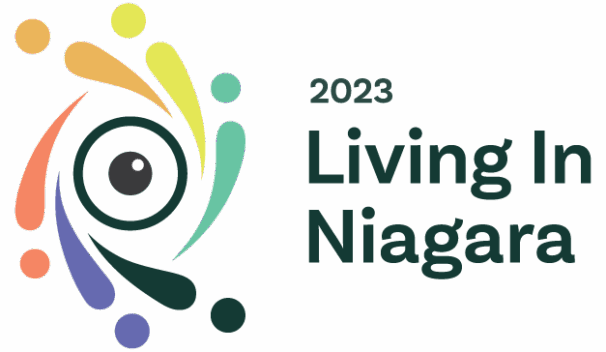The Early Development Instrument (EDI) is a short, teacher-completed assessment that measures children’s development in five key domains:
- Physical health and well-being
- Social knowledge and competence
- Emotional health/maturity
- Language and cognitive development
- General knowledge and communication skills
EDI scores for each of the five domains are based on four percentiles representing highest to lowest scores in the community. Children who score in the lowest 10th percentile are considered vulnerable in that domain of development.

Fig. 1 EDI score readiness scale. Offord Centre for Child Studies, 2011
Niagara Senior Kindergarten Student Development in 5 Key Domains – 2005, 2008, 2011
The following results demonstrate the change in the percent of children in Niagara who are in each level of readiness: Excellent, Good, At Risk and Vulnerable. When interpreting the results, please keep in mind that the EDI is only one measure of child development; not all children in Senior Kindergarden (SK) in the Niagara region are included; nor does the data include children with special needs.
Source: Kelly Catherwood, Data Analysis Coordinator, Niagara Region Public Health
Retrieved From: Not available online
Percentage of Niagara SK students in each level of readiness to learn domain in 2005, 2008 and 2011:

Source: Kelly Catherwood, Data Analysis Coordinator, Niagara Region Public Health
Retrieved From: Not available online
The Niagara Children’s Planning Council (NCPC) is a public private collaboration that has existed since 1998 to enhance the lives of children and families within Niagara Region. Its goal is to provide leadership and planning to ensure that all children in Niagara have the opportunity to reach their full potential and succeed in life. NCPC is the local provincially-mandated Best Start Network. NCPC brings together government, education, early learning, child care services, community services, early identification services, intervention services, health and specialized services, community leaders and the private sector to provide leadership, planning and coordination to ensure it reaches its goal.
www.parentdirectniagara.ca is an online directory for information and links to programs, services, and resources for children and families in Niagara. It is operated by the Early Childhood Community Development Centre (ECCDC) with support from the NCPC.
The Niagara Parent Knowledge Study was conducted by the NCPC Research Group during four weeks from January 14 to February 10, 2014. The goal of the project was to fill the information gap about Niagara parent’s knowledge about child growth and development.
The online survey reached just under 1600 Niagara parents of children 0-6 years of age. Even though 96.3% of parents agreed or strongly agreed with the statement “I am confident in the knowledge that I have of my child’s growth and development” their actual knowledge of children’s growth and development diminished as children aged. Parents seemed to know a lot about very young children (between 0 to 6 months) but as their child aged their knowledge of their child’s growth and development diminished.
Source: Niagara Children’s Planning Council Niagara Parent Knowledge Study Executive Summary
Retrieved From: http://www.niagaraknowledgeexchange.com/resources-publications/niagara-parent-knowledge-study-executive-summary/
Best Start Child and Family Centres offered in identified Niagara communities
Over the last two years with the Provincial shift to a more integrated service system for families and children, the Best Start Child and Family Centre Service System Committee, a subcommittee of the NCPC developed two pilot family centres as accessible community-based primary points of service in identified communities where families and caregivers can access programs, services and resources that are flexible and adaptable to meet the community’s needs. Community partners work together along with family input to address and support the needs of children and their families. Findings and learnings from these pilot family centres are providing rich information that will be used to implement family centres across Niagara region.
Source: Niagara Children’s Planning Council
Retrieved From: http://www.niagaracpc.ca/best-start-child-and-family-service-system
Family Resource Centres provide free programming to unique populations in Niagara. In 2013 over 600 children were served in three centres: Coin des familles in Welland serving the French speaking population, Fort Erie Native Friendship Centre in Fort Erie primarily serving the Indigenous community and Bethlehem Place Early Learning Centre in St. Catharines serving women and children in supportive housing. These centres provide drop-in programs for parents and children, connection to other resources in the community and educational workshops, including information about parenting and child development.
Source: Niagara Region
Retrieved From: https://www.niagararegion.ca/living/childcare/activity-centres/family-resource-centres.aspx
Family Resource Program
The Community Action Program for Children (CAPC) runs a free local program in Welland, St. Catharines and Niagara Falls called Niagara Brighter Futures that helps families with young children (birth to 6) living in conditions which may impact their ability to reach optimal health. The program assists vulnerable families to increase both adult and child health, develop problem-solving skills and social networks, and to engage in their communities. Program activities include: parent education, programs for children, information and referrals, multicultural and health and nutrition programs.
Source: Parent Direct Niagara and Niagara Community Information Database
Retrieved From: http://www.parentdirectniagara.ca/listing/550/13 and http://niagara.cioc.ca/record/NIA3717
Niagara Region Public Health (NRPH) comes in contact with 96.5% of families in Niagara through the Healthy Babies/Healthy Children program. Parents and caregivers involved in the program are provided with support to get their babies off to the right start.
NRPH has achieved its Baby Friendly Designation, through an initiative created by the World Health Organization (WHO) and UNICEF to protect, promote and support breastfeeding and support the infant feeding needs of all families.
Well-Baby Clinic and Parent Drop-in is offered regularly in Welland, Niagara Falls and St. Catharines. Parents with babies up to one year of age can drop-in to weigh their baby and talk to a Niagara Region Public Health Nurse about a variety of topics including breastfeeding, baby’s sleep and other parenting resources and activities in Niagara.
NRPH and Adolescent’s Family Support Services Niagara (AFSSN) have partnered to offer a brand new program to young fathers in Niagara. This program is a unique drop-in model that is peer-led and allows new fathers to talk about challenges they are facing as a new parent while learning about how to support their child’s growth and development. This program provided service to more than fifteen young fathers from February-June 2014.
Source: Niagara Region Healthy Families
Retrieved From: http://www.niagararegion.ca/government/departments/health/default.aspx
Ontario Early Years Centres (OEYCs) provide free programs and services to parents and caregivers with children newborn to six years old. They provide drop-in year round, weeknights and weekends places for children to play and learn with their parents / caregivers; to interact with other children; and experience activities to stimulate brain development. Parents / Grandparents / Caregivers can participate in early learning activities with their children; attend workshops related to child development; obtain support and guidance related to concerns; meet other parents/caregivers; borrow resources and learn about other early years services.
Source: Kelly Wilcox, Manager, Ontario Early Years Centre, Erie-Lincoln
Retrieved From: http://www.oeyc.edu.gov.on.ca/locations/index.aspx#hamiltonniagara
Parent and Family Literacy Centres (PFLC) in Niagara:
These centres, located in Welland, Fort Erie, St. Catharines and Niagara Falls give children from infancy to six years old a chance to get a head start in their learning through a variety of engaging and educational activities. In addition to the numerous educational activities, the PFLCs are also a link for families to important community resources such as special needs, health, employment and other related services.
Source: District School Board of Niagara
Retrieved From: http://www.dsbn.edu.on.ca/pflc/index.aspx?id=13748
Note: Related information is included in the Learning and Education Sector of the Living in Niagara-2014 report
Child Care in Niagara: At the end of 2012, there were 68 child care agencies operating 167 licenced child care centres in Niagara providing 9,722 licenced centre-based childcare spaces. In addition, there were 129 home child care providers contracted with three licenced home child care agencies with capacity for approximately 645 children. In 2011, 1524 children with developmental challenges were supported by licenced childcare centres in Niagara and in 2012, 1,428 of these children were supported.
Source: Personal Communication with Kathryn Ballantyne, Children’s Services, Niagara Region
Retrieved From: Not available online
Full-Day Kindergarten is available to all four- and five-year-olds in Ontario as of September, 2014. It prepares young children for school by helping them build a strong foundation for their future learning.
Source: Ontario Ministry of Education
Retrieved From: http://www.edu.gov.on.ca/kindergarten/fulldaykindergartenschools3.html
Note: Related information is included in the Learning and Education Sector of the Living in Niagara-2014 report






